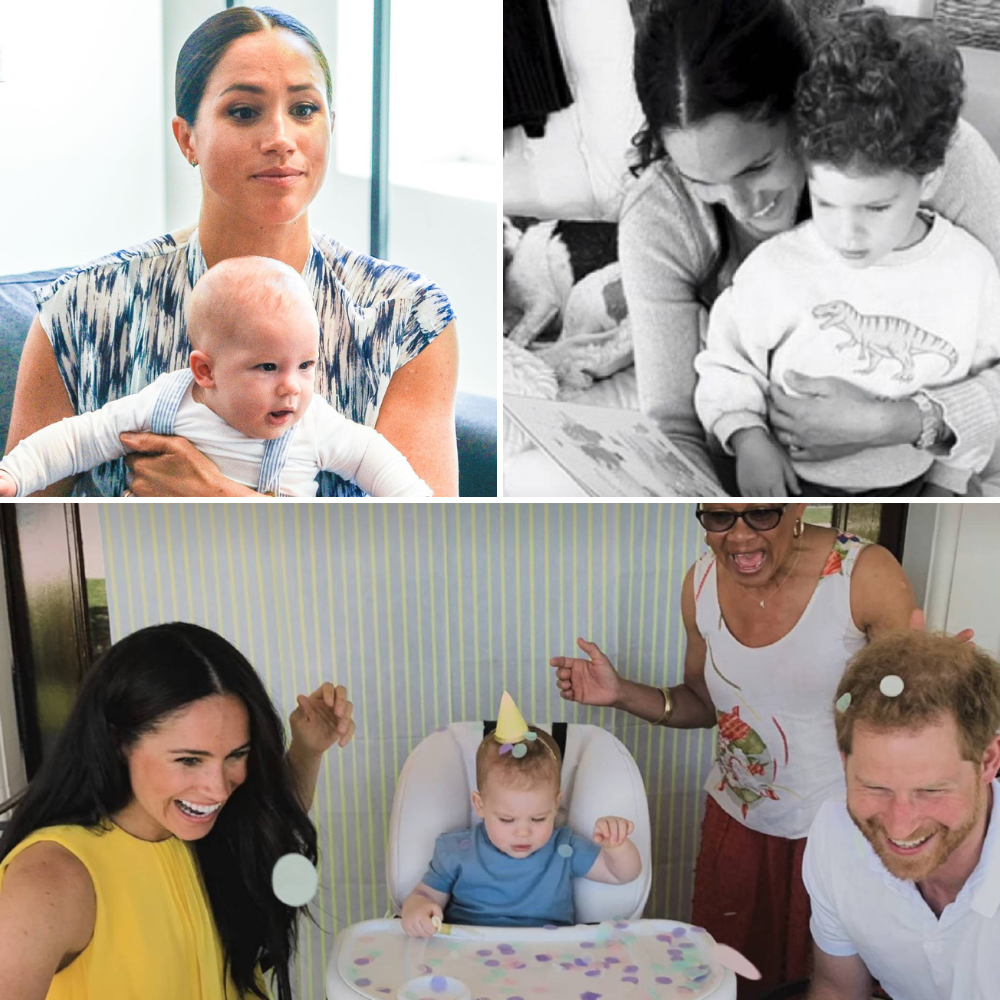
In the grand halls of Buckingham Palace and the glossy pages of royal history books, titles are more than mere formalities—they’re symbols of lineage, power, and a centuries-old institution. So when Prince Harry and Meghan Markle, the Duke and Duchess of Sussex, made the decision to reject a royal title for their firstborn son, Archie Harrison Mountbatten-Windsor, the world raised its collective eyebrows.
The move stunned royal watchers and sparked endless debate. Why would a couple so deeply intertwined with royal heritage turn down what many would see as an honor? What was the motive behind allowing Archie to grow up as a “commoner” when he could have carried a title that linked him directly to the crown?
Now, years after the decision, a deeper look into their motivations is coming to light—and it paints a portrait of two parents determined to forge a different path for their child, away from the weight of tradition and the scrutiny of the crown.
A Deliberate Rejection of the Royal Mold
According to close sources and insiders with knowledge of the couple’s reasoning, the decision wasn’t impulsive or rooted in rebellion. Rather, it was an intentional break from a system they believed could stifle Archie’s freedom.
Prince Harry, having grown up in the intense glare of the British tabloid press, was deeply aware of the personal cost of royal fame. From childhood to adulthood, his every move was dissected, judged, and—more often than not—exploited. For Meghan, a biracial American actress who was thrust into the royal spotlight seemingly overnight, the scrutiny was equally relentless and, at times, overtly hostile.
Together, the couple came to the conclusion that a royal title for Archie would mean placing him on a path similar to the one Harry had struggled with for most of his life. And that was a road they simply weren’t willing to force their son to walk.
Freedom Over Formality
Although Archie was eligible for a courtesy title—namely the “Earl of Dumbarton”—Harry and Meghan reportedly turned it down soon after his birth. According to royal convention, he could have also been styled as “Lord Archie,” but again, the parents declined.
Their reasoning? They wanted him to live as normal a life as possible.
To the Duke and Duchess, the word “normal” meant freedom from royal obligation, protocol, and the invisible cage of expectation. It meant attending a school without the burden of a bodyguard parade or growing up without the looming shadow of a throne he would never sit upon.
It also meant giving him a name—Archie—that was universally relatable, free of pomp and grandeur, and rooted in simplicity. This decision was as much symbolic as it was practical.
The Intersection of Race and Royalty
Many observers have speculated that race also played an unspoken, yet undeniable role in the couple’s decision. Meghan’s experiences with racism from both the media and, as suggested in interviews, within royal circles, likely influenced how they wanted to raise Archie.
By distancing their child from the royal system, Harry and Meghan were not just protecting his privacy—they were protecting his identity. They were creating space for him to define himself on his own terms, rather than within an institution that has long struggled with issues of inclusion and modernity.
What About the Future?
When Queen Elizabeth II passed away and King Charles III ascended the throne, questions resurfaced about whether Archie and his younger sister, Lilibet Diana, would receive prince and princess titles under the new reign.
By convention, they were eligible. But would the Sussexes accept them?
As of today, it appears they have not actively sought the titles for their children. Even if such honors were formally granted, it remains unclear whether Harry and Meghan would allow their children to publicly use them.
In many ways, their stance has remained consistent: titles are not what make a life meaningful or dignified. Values, freedom, and a secure family foundation matter more.
Public Reactions and Royal Repercussions
The decision to snub a royal title wasn’t without consequence. Critics accused the couple of wanting “the perks without the responsibilities.” Others questioned how they could still profit from royal connections while simultaneously distancing themselves from them.
Yet, supporters praised the move as courageous. For many, especially younger generations and those who relate to Meghan’s outsider status, the rejection of the royal title symbolized a progressive step away from an outdated system.
In interviews, Harry and Meghan have repeatedly stressed that their intention is to raise children who understand service, humility, and empathy—not hierarchy.
A Different Kind of Legacy
Ultimately, Prince Harry and Meghan Markle’s choice to forgo a title for Archie sends a powerful message: that nobility is not defined by crowns, thrones, or names—but by the kind of life one leads and the values one embodies.
In stepping away from tradition, the couple didn’t turn their backs on their roots. Instead, they planted a new seed—one that could grow into a different, freer, more inclusive legacy.
Archie Harrison may not carry a title before his name, but in the eyes of his parents and many admirers, he carries something greater: the hope for a better way forward.
And that’s exactly why everyone’s still talking.

